Gardens: From lawns to lettuce
If you happen to meander around Vancouver’s Mount Pleasant neighbourhood, you may notice something unusual. The predictable sequence of manicured front lawns that meet the sidewalk are being converted into robust veggie gardens, bursting with forests of kale and tomato vineyards.
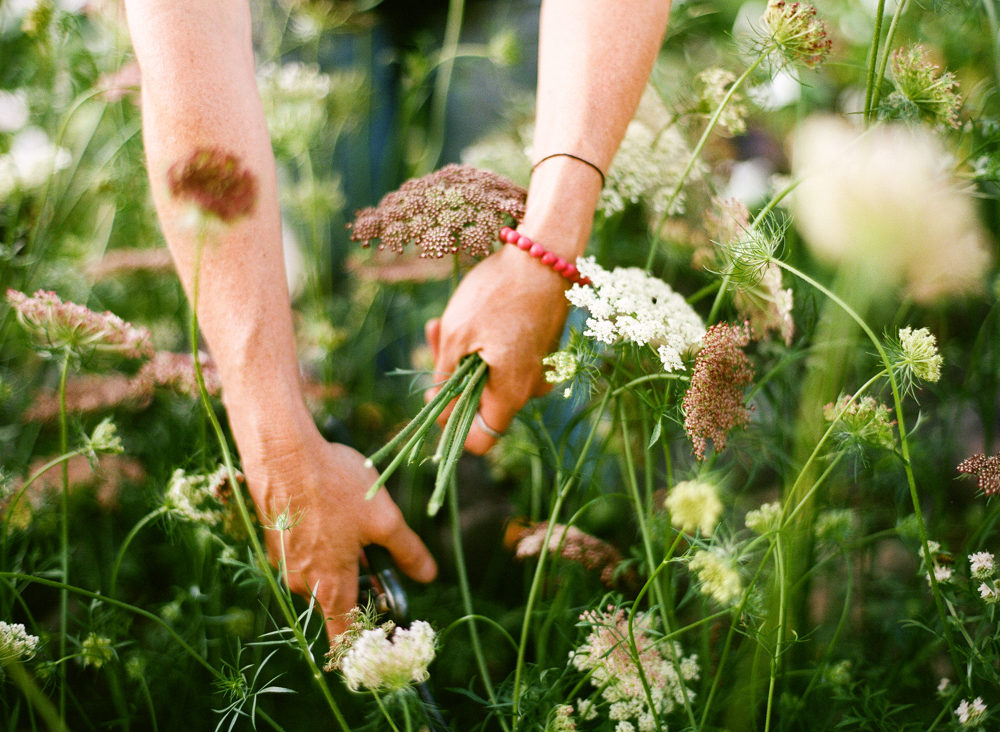
These micro-farm sites, spread throughout the neighbourhood, are part of a larger initiative called City Beet Farm—a multi-site urban farm, born out of a commitment between two young farmers and a community of homeowners.
Elanna Evans and Maddy Clerk currently run City Beet farm. They trade vegetables in exchange for land with homeowners, and sell the majority of the produce back to the community through weekly Community Supported Agriculture (CSA) boxes. This past year, they had 18 plots of land, and sold weekly veggie boxes to more than 80 members.
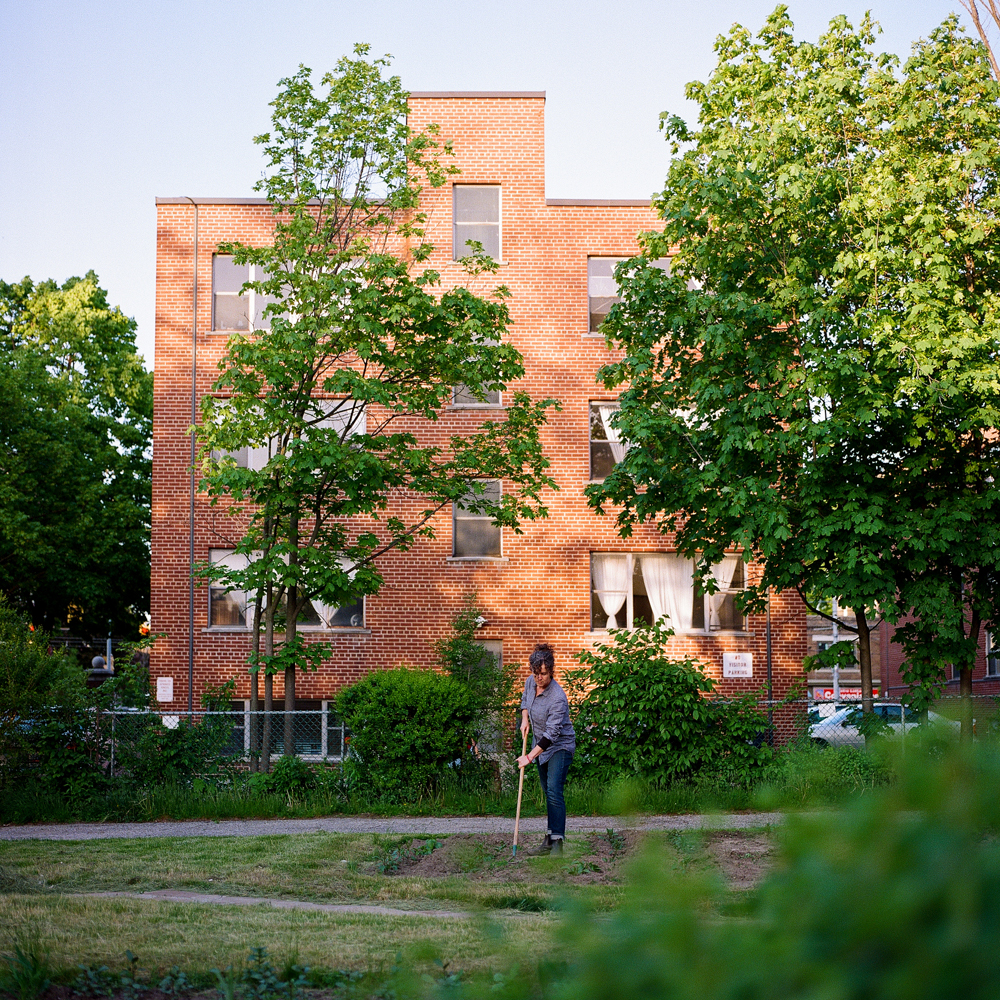
Although not all crops are suitable for this model of farming, they are able to grow about 30 different varieties of vegetables, including carrots, beets, tomatoes, leafy greens, leeks, onions, garlic, squash, cabbage, potatoes, and peppers.
This model of growing, exchanging, and eating food, all within the same few blocks, literally brings the food system to people’s doorstep.
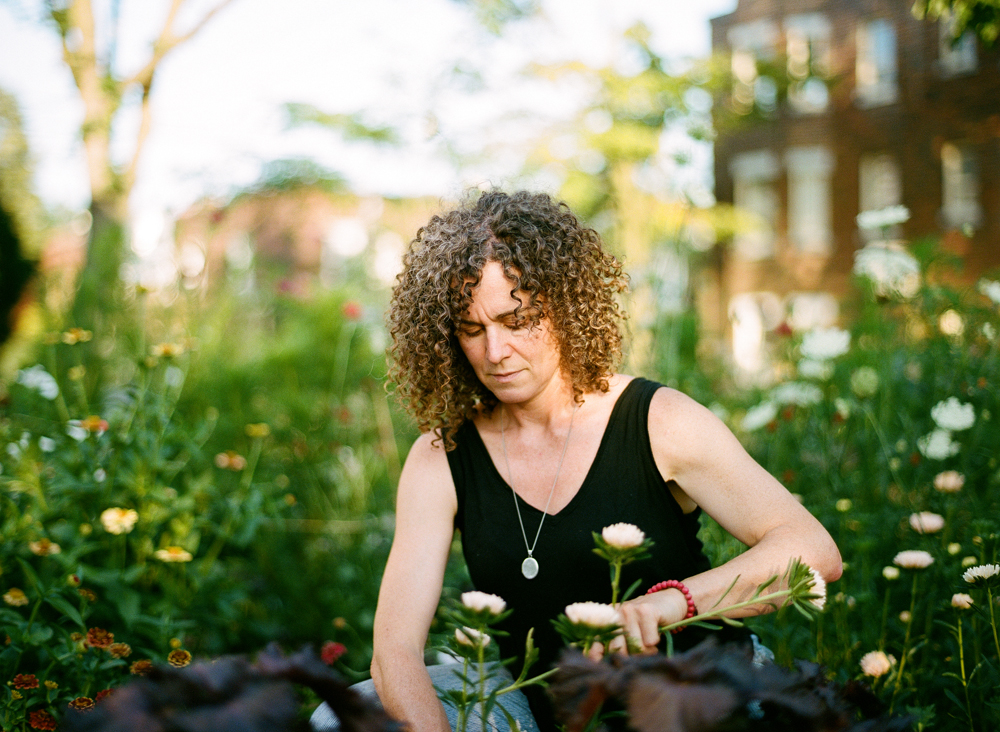
“It’s really special to connect with people and grow food for people in this neighbourhood,” Maddy explains, “kids come through and they get to plant kale with me, and then they’re coming to our CSA pickup a few days later and eating the food that they’ve seen grow.”
A similar model is transforming the Parkdale/ Roncesvalles neighbourhoods of Toronto. Forests of flowers are popping up on what is typically a front lawn. Sarah Nixon’s flower business, My Luscious Backyard, grows and harvests fresh-cut flowers, utilizing the front and back yards of homes within her neighbourhood. This symbiotic relationship provides Sarah with free land to grow on, and provides homeowners with a free, pollinator-friendly garden, without any of the work.
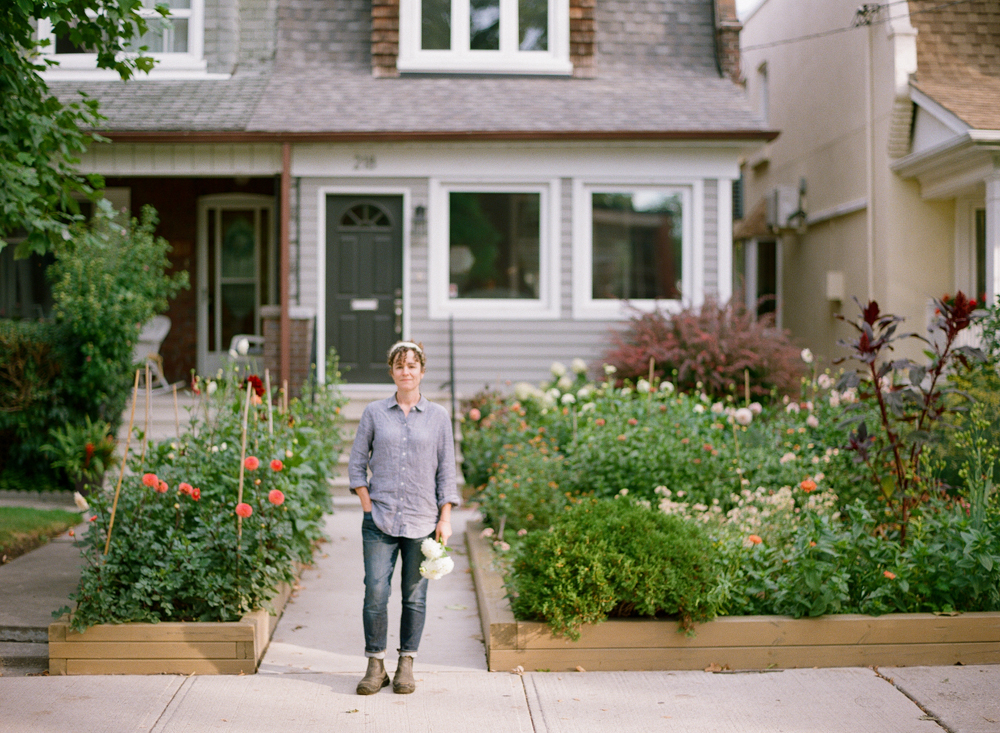
Sarah first started her business out of her backyard, but as her business grew, she was seeking space elsewhere. With the expensive cost of land in the city, she had to get creative. She saw potential in the neglected gardens and underutilized landscapes in her neighbourhood and managed to convince some people to rip up their lawn and replace it with dahlias, foxgloves, and cosmos.
Over the years, her micro-site urban farm has expanded to include over a dozen yards within biking distance. She grows over 60 varieties of flowers, which she harvests and sells through CSA floral subscriptions, weddings and special events, and at local farmers markets.
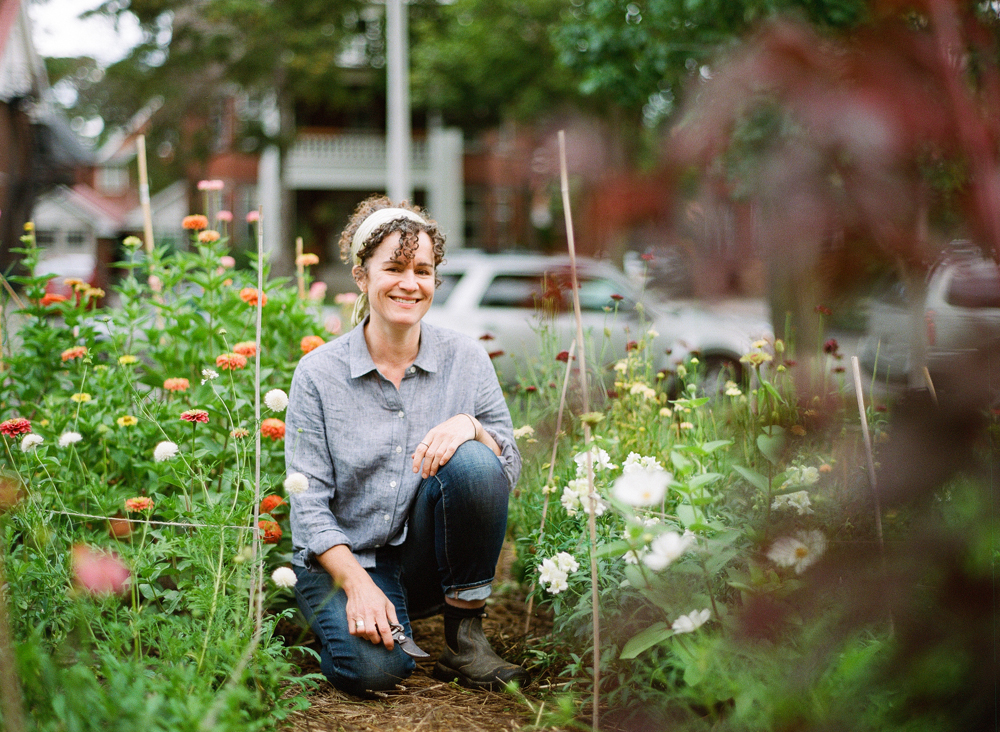
A lot of the work on small urban plots involves regenerative agriculture practices. It can take an enormous amount of time and effort to regenerate soil and allow it to be healthy, fertile, and productive. Maddy explains, “when we started some of our sites had gravel and fill and sort of lifeless soil, and through our three years of applying these regenerative agriculture practices, I have now seen, first-hand, how lush and full of life the soil has become. I mean, its crawling with worms, and even the surrounding areas have become so much more full of life.”
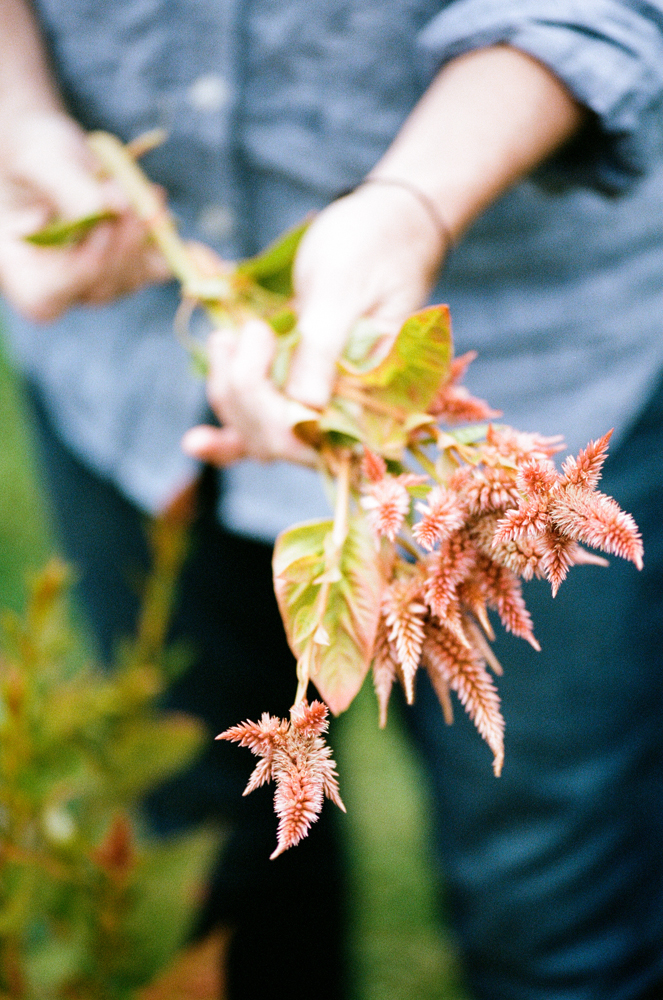
These businesses also have to be very adaptable, as they are growing on other people’s land. They can convert new sites and transport crops if they have to, but the work and investment into the soil cannot be moved.
“A lot of our sites are in the Cambie Corridor and are very vulnerable to development pressures,” Maddy says. “I would be lying if I said it wouldn’t be heartbreaking when that work is inevitably going to be lost to development pressure in Vancouver.”

Whether it’s a carpet of lettuce, or a pasture of peonies, these provocative, unconventional uses of space stand out, and they are gaining traction. Passers-by are challenged to rethink the way we use space in urban cities. “Frankly, lawns are dumb,” Maddy says, “there’s a real power in taking back the land for our community.”
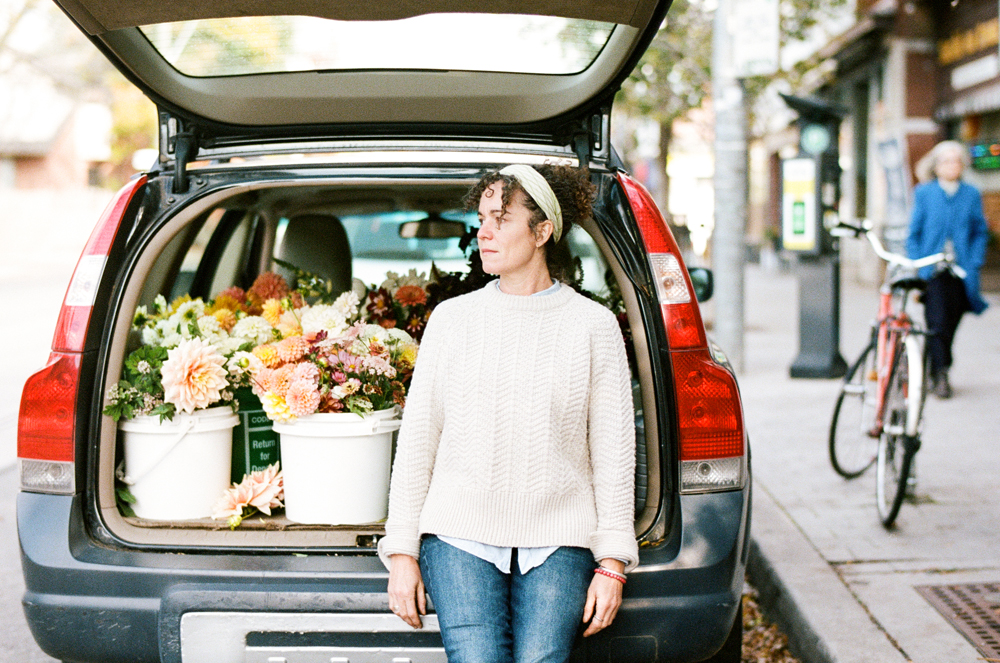
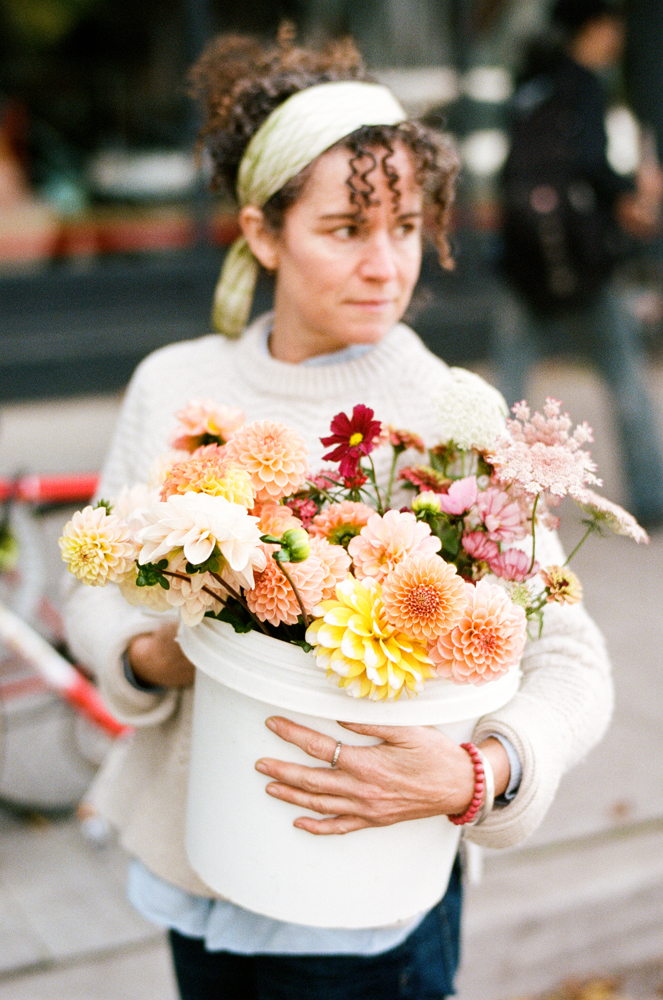
Text by Kaitlyn Pelletier who is working as a landscape designer in Vancouver.
